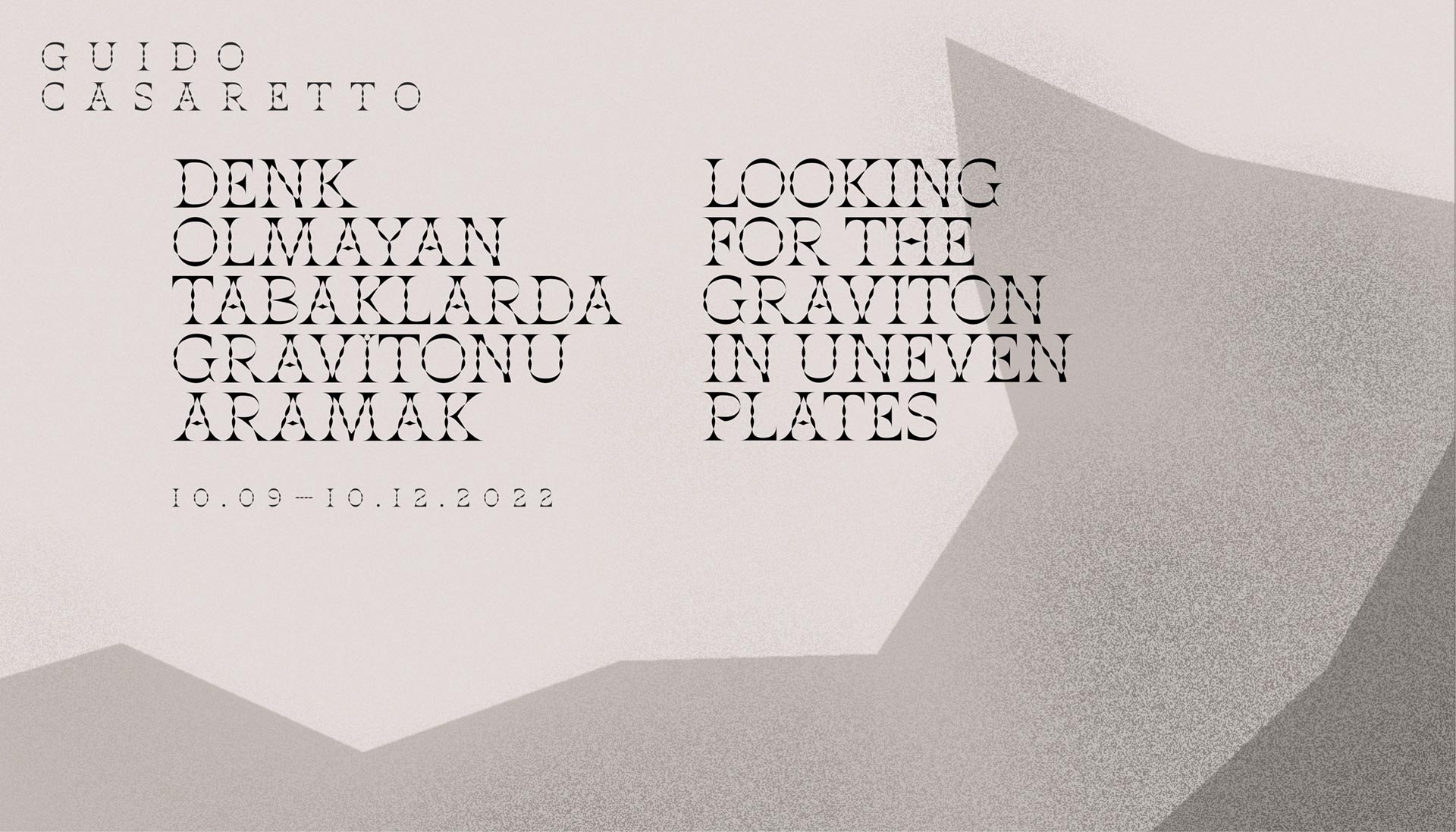
Most of the works in Guido Casaretto’s “Looking for graviton in uneven plates” are on view in Turkey for the first time. The artist, who often employs the acts of repeating and copying in his works, makes it possible to bring together the astronomic dynamics that produce stars, geodynamic processes that birth topographic formations, the crafts studio, and the artist’s workshop. We can trace a multi-cultural life in his productions; Casaretto contemplates transferring geographic and cultural elements through systems as the artist works through materials including cement, leather, earth, and epoxy.
Casaretto takes on the perception of nature and the reproduction of nature through digital tools, as he focuses on the notion of sensation. In his works, the artist is occupied with references of electronic information, various materialities, and art historical references, overlapping different sensations with the physical quality of the material within the framework of art history and types of perception. Casaretto is striking in his skill in imitating natural material, finding the right materials, and gaining mysteriously realistic impressions.
“The exhibition Looking for graviton in uneven plates’ brings together works by Guido Casaretto, an artist from Turkey of Italian descent, as he considers question-concepts that form the backbone of art, including repetition and uniqueness, sameness and difference, imitation and originality, limitation and freedom, production process and creation. In these works, the artist meticulously approaches the material elements of each artistic execution, reconstructing through the artist’s questions dynamics of various scales ranging from astronomic formations to the practices of crafts. This exhibition refers to different stations among astronomic, geologic, and cultural processes, dispersed within a problem that the artist focuses on in his practice: abstracting production processes on various scales in the form of a cluster that can be repeated by the body and this limited action can be closely monitored throughout the artistic production.” —Oğuz Karayemiş
Tuesday-Saturday:
11.00—19.00
Sunday: 12.00—18.00
Monday: Closed
